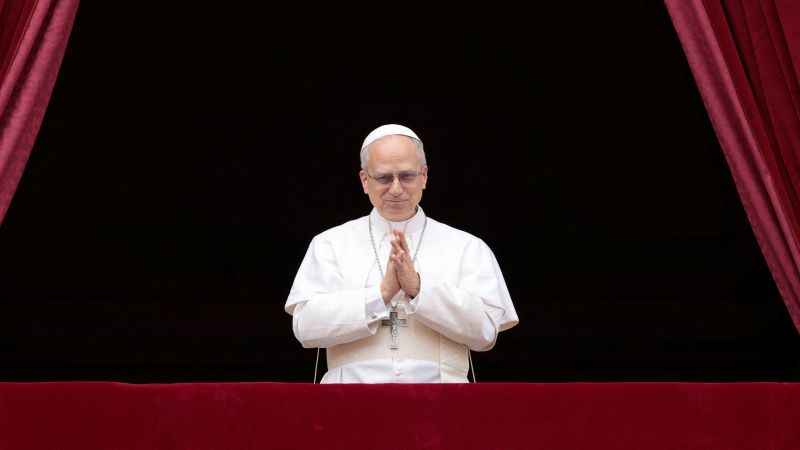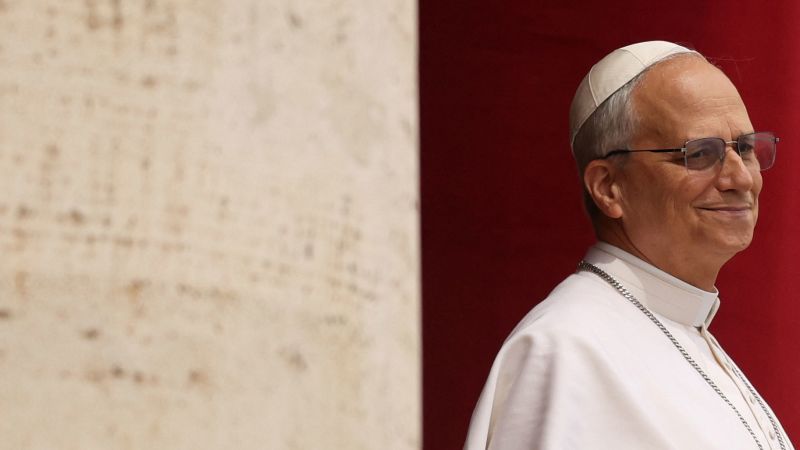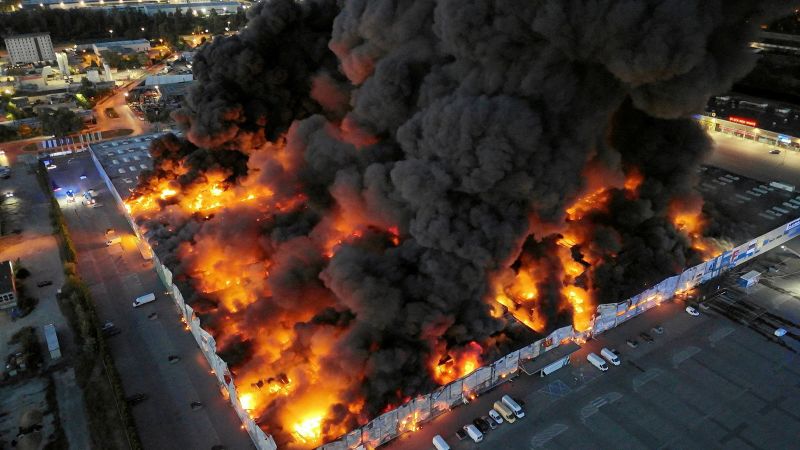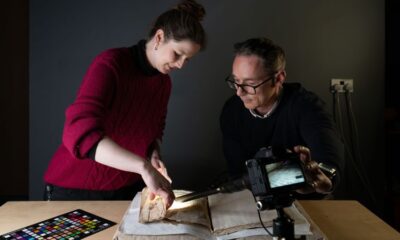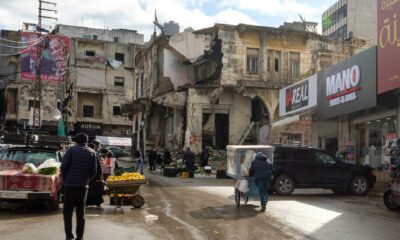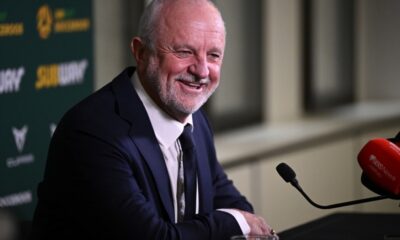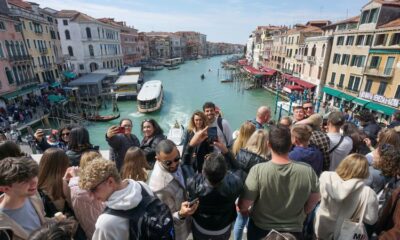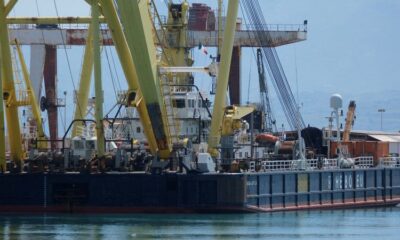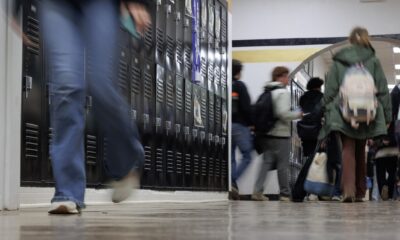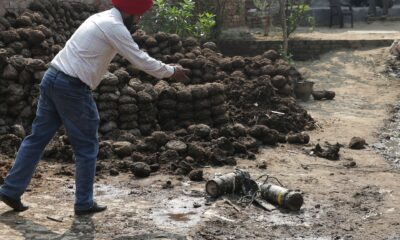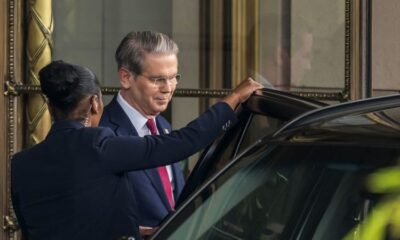Rome
CNN
—
Pope Leo XIV stepped out onto the balcony of St. Peter’s Basilica to thunderous applause and an electric atmosphere, to deliver his first Sunday blessing and an address calling for peace in Ukraine and Gaza.
The last time he stood on the same velvet-draped ledge, the fragrant scent of white smoke was still hanging in the air and looks of shock permeated the crowd. Just days ago, the election of a US-born pope seemed almost impossible.
But those gathered in St. Peter’s Square on Sunday knew exactly what to expect – a pontiff who was born in Chicago, shaped in Peru and well-experienced in Vatican leadership.
“Let us take up the invitation that Pope Francis left us in his Message for today: the invitation to welcome and accompany young people,” Leo said Sunday from the balcony, speaking in fluent Italian. “And let us ask our heavenly Father to assist us in living in service to one another.”
“In today’s dramatic scenario of a third world war being fought piecemeal, as Pope Francis said, I too turn to the world’s leaders with an ever timely appeal: never again war!,” he said.
Pope Leo called for peace in Ukraine, as well as a ceasefire in Gaza and the release of hostages. He also called for humanitarian aid to be provided “to the exhausted population” in Gaza.
“I welcomed the announcement of the ceasefire between India and Pakistan and I hope that through negotiations we can reach a lasting agreement,” he added.
He delivered a “message of peace” and led the faithful crowd in the Regina Caeli (“Queen of Heaven”) prayer for the first time, surprising those gathered by singing part of the prayer.
The prayer is one of four Marian antiphons, or prayers to the Virgin Mary, which is said throughout the Easter season.

The city of Rome said 150,000 people were expected to gather in St. Peter’s Square for the prayer and significant law enforcement resources are deployed, but an official estimate of the crowd has yet to be announced.
The square was booming with music ahead of Leo’s address, as hundreds of musicians from around the world marched into St. Peter’s Square for a Jubilee of Bands, playing classic songs from their home countries and even pop songs like Village People’s 1978 hit “YMCA.”
As he finished his address, loud shouts of “viva il papa,” or “long live the pope,” were heard among the tens of thousands of people.
Pope Leo is indicated on Saturday that his papacy will follow closely in the footsteps of the late Pope Francis, setting out a vision for a church led be a missionary focus, courageous dialogue with the contemporary world and “loving care for the least and the rejected.”
Leo is expected to lean in a more progressive way on social issues like migration and poverty but fall more in line with moderates on moral issues of Catholic doctrine.

In his first meeting with cardinals on Saturday, the new pontiff said that he chose his papal name to continue down the path of Pope Leo XIII, who addressed “the social question in the context of the first great industrial revolution.” Leo XIII, who was pope from 1878 to 1903, had a strong emphasis on workers’ rights and Catholic social doctrine.
Leo XIV also used his first weekend as pontiff to visit the Basilica di Santa Maria Maggiore, where he prayed at the tomb of Francis.
He also traveled to an Augustinian sanctuary just outside Rome, the Madonna del Buon Consiglio (Mother of Good Counsel), in Genazzano, Italy.
Leo is the first pontiff from the Augustinian order, which places an emphasis on service work and building community. He spent more than a decade leading the Augustinians as the prior general, giving him experience of heading an order spread across the world.
Even larger crowds are expected to fill St. Peter’s Square during Pope Leo’s installation Mass, which will take place on Sunday, May 18.
CNN’s Sharon Braithwaite and Christopher Lamb contributed to this report.

